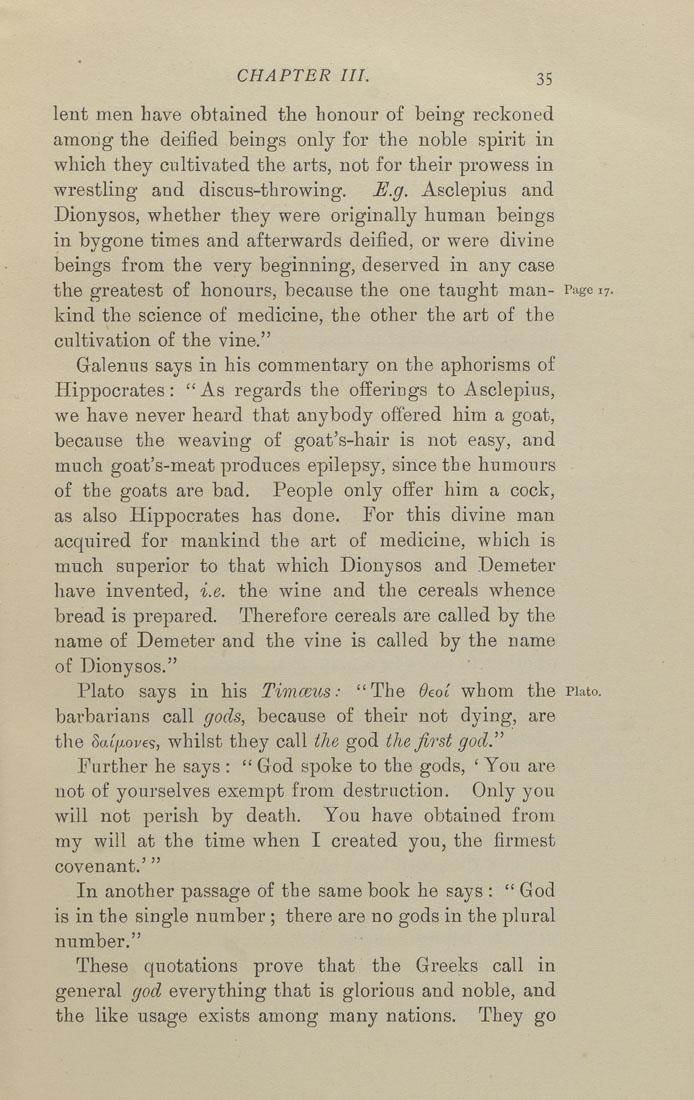Bīrūnī, Muḥammad ibn Aḥmad, Alberuni's India (v. 1)
(London : Kegan Paul, Trench, Trübner & Co., 1910.)
|
||
|
|
|
|
| Page 35 |

CHAPTER III. 35 lent men have obtained the honour of being reckoned among the deified beings only for the noble spirit in which they cultivated the arts, not for their prowess in wrestling and discus-throwing. F.g. Asclepius and Dionysos, whether they were originally human beings in bygone times and afterwards deified, or were divine beings from the very beginning, deserved in any case the greatest of honours, because the one taught man- Page 17. kind the science of medicine, the other the art of the cultivation of the vine." Galenus says in his commentary on the aphorisms of Hippocrates: "As regards the offerings to Asclepius, we have never heard that anybody offered him a goat, because the weaving of goat's-hair is not easy, and much goat's-meat produces epilepsy, since the humours of the goats are bad. People only offer him a cock, as also Hippocrates has done. For this divine man acquired for mankind the art of medicine, which is much superior to that which Dionysos and Demeter have invented, i.e. the wine and the cereals whence bread is prepared. Therefore cereals are called by the name of Demeter and the vine is called by the name of Dionysos." Plato says in his Timceus: "The Oeol whom the Piato. barbarians call gods, because of their not dying, are the So.L[xoves, whilst they call the god the first god." Further he says : " God spoke to the gods, ' You are not of yourselves exempt from destruction. Only you will not perish by death. You have obtained from ray will at the time when I created you, the firmest covenant.'" In another passage of the same book he says : "God is in the single number ; there are no gods in the plural number." These quotations prove that the Greeks call in general god everything that is glorious and noble, and the like usage exists among many nations. They go |
| Page 35 |







